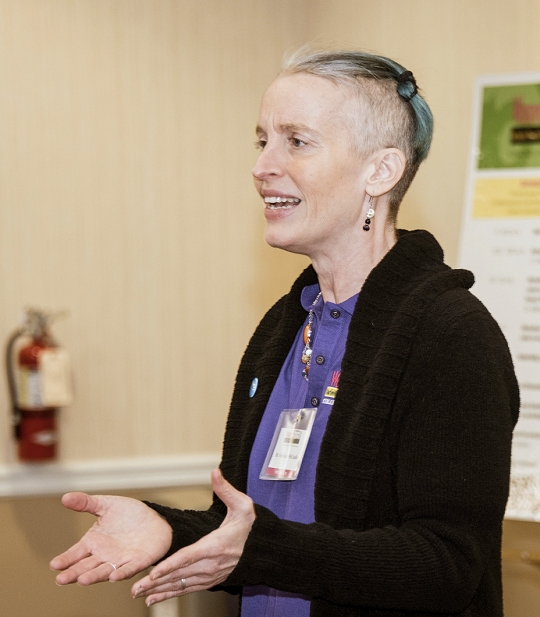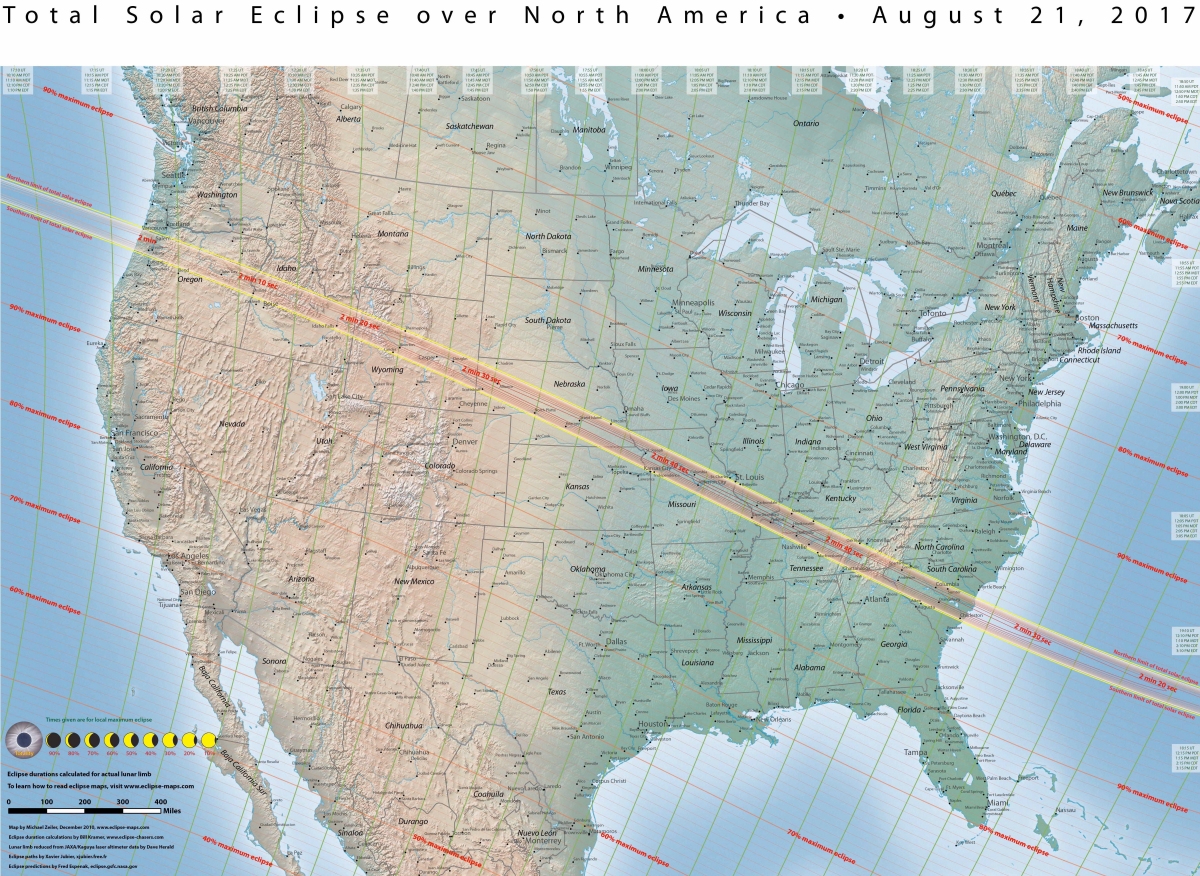 CSM Math Professor Dr. Stephanie McCaslin speaks at a Women in STEM event held at CSM's La Plata Campus. McCaslin will be a featured speaker about the math related to a total eclipse at an eclipse festival in Broken Bow, Nebraska, on Aug. 21.
CSM Math Professor Dr. Stephanie McCaslin speaks at a Women in STEM event held at CSM's La Plata Campus. McCaslin will be a featured speaker about the math related to a total eclipse at an eclipse festival in Broken Bow, Nebraska, on Aug. 21.LA PLATA, Md. (August 16, 2017)—CSM Math Professor Dr. Stephanie McCaslin missed the last total eclipse of the sun visible to the United States, which took place in 1979. But McCaslin has a starring role in the upcoming eclipse August 21. "I am incredibly excited," she said.
"I was 4 and living in the Southwest," McCaslin said of the last eclipse. "We were out of the path of totality [the 70-mile-wide area where the sun is completely blocked out by the moon], and it was a cloudy day. So, I've never seen a total eclipse."
Making up for that disappointment, McCaslin is excited to be participating in the Aug. 21 eclipse as part of a four-day event in Broken Bow, Nebraska, which is within the path of totality. McCaslin, at the invitation of the city and Custer County Development in Nebraska will be presenting on the mathematics of eclipses following days of events like a chicken-wing eating contest, live music concerts, a street dance and barrel racing that will make up the Broken Bow NeClipse 2017 festival.
McCaslin is featured in the festival schedule to present "The Math of It All" at Broken Bow's scenic byway barn on the day of the eclipse, first at 10:30 a.m. (CT) for a safety briefing and then at 2 p.m. (CT) for the math talk.
"There's math everywhere, but especially in any astronomy," McCaslin said. "I'll be talking about the statistical frequencies, the probabilities and geometry. As a mathematician, I love to play with numbers, and I love that the slight tilt of the moon's orbit, combined with its elliptical shape, and the ratio of the size of the moon compared to the distance of the earth from the sun create the perfect circumstances for an eclipse like this one to occur."
The town of Broken Bow will be filming both McCaslin's talk and the eclipse, and have offered to connect with CSM to live stream both. The live stream will feature three locations: Carhenge, an art piece in western Nebraska where a replica of Stonehenge has been created using junked cars; Broken Bow, where McCaslin will be speaking; and Nebraska City, where Bill Nye the Science Guy will be speaking.
"I've always been fascinated with space and read astrophysics texts for fun," she said. "I'm also feeling incredibly fortunate to have been asked to participate in this event. It's a huge honor.
"From what I understand, a total solar eclipse is life-changing," McCaslin said. "It is a magical moment. The temperature will drop up to 20 degrees, I will be able to look directly at the sun during totality (not something that is safe to do otherwise) and see the cornea of the sun, the glow of the sun's power behind the black void of the moon. Other spectacular parts of the eclipse that are only visible during a total eclipse are the Bailey's beads, which are beads of light that are caused by the hills and valleys of the moon's surface. A total solar eclipse is magnificent, in that everyone will stop, and we will collectively be looking up at the heavens together, a true community of observers."
McCaslin's roots are in Nebraska. Both of her parents are from a small community in central Nebraska, and they currently live in Custer County. Her father served in the U.S. Air Force when McCaslin was growing up, so the family moved frequently and was never stationed in their home state.
"Even though I've never lived in Nebraska, I've been adopted as an honorary Nebraskan," she said. One way she has demonstrated that connection is, for the last 10 years or so, she has worked with communities across central Nebraska to honor their military veterans. She has hosted two to three of these groups a year to Washington, D.C., and acted as their tour guide, showing them the monuments, contacting their representatives and more.
A Southern Maryland resident, McCaslin has been employed at CSM since 1996, serving as an adjunct instructor from 2000-2006 and a full-time professor in the Math, Physics, and Engineering department since 2006. With a doctorate in mathematics education, her specialty is teaching math methods courses to CSM's education majors. She has also been involved with the college's annual Women + STEM efforts over the past years to introduce and inspire young women in math-related careers.
While McCaslin will experience the total eclipse in Nebraska on Aug. 21, a partial eclipse will be visible in all of the United States. Southern Maryland will experience close to an 80 percent eclipse, where the moon will cover 80 percent of the sun.
NASA warns against looking directly at the sun without appropriate protection during the eclipse. That could severely hurt your eyes. For details on how to safely view the eclipse, visit eclipse2017.nasa.gov/.
The livestream of McCaslin's presentation and the eclipse is available at ncnsportsnow.com/, with coverage beginning at 10 a.m. (EST). To learn more about CSM's programs and faculty, visit www.csmd.edu.



